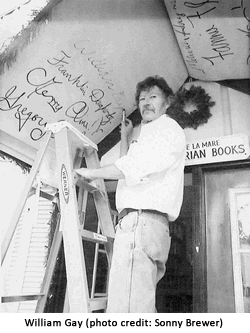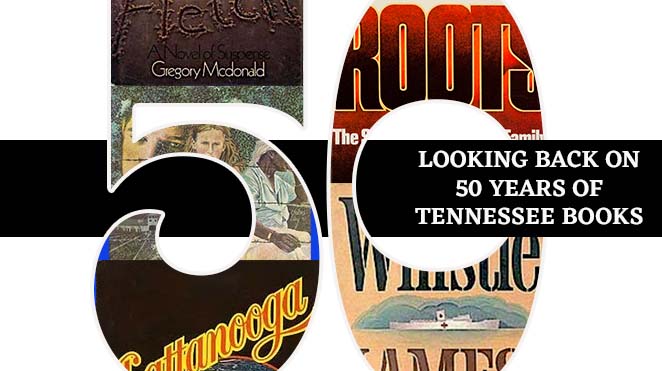Let’s talk about the drywall-hanging.
Or not.
Every obituary I’ve read about William Gay—as was the case with every newspaper or magazine profile I read about William while he was alive—features his time in the carpentry trades, particularly as a drywall hanger, almost as prominently as it features his prodigious gifts and accomplishments as a writer.
Which smacks, or ought to smack, of condescension and snobbery—inadvertent usually, and most often well-intentioned, but condescension and snobbery nonetheless.
 Based solely on the many thousands of words written about William’s pre-writing career as a carpenter one might come to believe that he was some kind of working class savant, a Rain Man of Letters; that an infinite number of drywall hangers had banged on an infinite number of typewriters until one of them accidentally typed The Long Home. The dark, unspoken corollary of this kind of reasoning, even as it purports to celebrate the man, is that the production of literature is still considered, as it always has been, an exclusive province of the elite. Any truly successful person such as, say, a major American literary figure, must be successful for a reason; likewise, the guy spackling your kitchen addition must be doing so because he isn’t smart enough to do anything more important. Who knows, maybe five hundred years from now, some misguided but clamorous band of second-tier scholars will waste time debating who really wrote the books of William Gay because, God knows, a drywall hanger from Hohenwald, Tennessee, with little formal education, would have been incapable of doing so himself.
Based solely on the many thousands of words written about William’s pre-writing career as a carpenter one might come to believe that he was some kind of working class savant, a Rain Man of Letters; that an infinite number of drywall hangers had banged on an infinite number of typewriters until one of them accidentally typed The Long Home. The dark, unspoken corollary of this kind of reasoning, even as it purports to celebrate the man, is that the production of literature is still considered, as it always has been, an exclusive province of the elite. Any truly successful person such as, say, a major American literary figure, must be successful for a reason; likewise, the guy spackling your kitchen addition must be doing so because he isn’t smart enough to do anything more important. Who knows, maybe five hundred years from now, some misguided but clamorous band of second-tier scholars will waste time debating who really wrote the books of William Gay because, God knows, a drywall hanger from Hohenwald, Tennessee, with little formal education, would have been incapable of doing so himself.
Pointing out that William Gay never went to college is as useless an exercise as pointing out that Bill Gates never finished. Education, like the production of literature, is ultimately the solitary pursuit of the diligent. William was able to write the extraordinary books he wrote because he had meticulously and passionately prepared himself, over the course of decades, to write them. He was an expert in twentieth-century Southern literature; he was a perceptive and infinitely knowledgeable music critic; the only people who maybe know more than William did about Bob Dylan and Cormac McCarthy are Bob Dylan and Cormac McCarthy. He was an inveterate patroller of literary magazines and devourer of fiction. I never saw him when he didn’t ask me if I had read this or that story in such and such a magazine, or what did I think of the work of so and so the blues musician. To be honest, I had almost never read the story; I was even less likely to know the work of the musician. He was, in short, in his fields of interest, in his areas of expertise, maybe the most impeccably educated man I ever met.
William did not climb down from his ladder and, having never read a book, decide he was going to write one. He climbed down from that ladder having read thousands of books. That singular education, patiently and privately obtained, enabled him to write novels that will retain the specific gravity of literature for as long as there are shelves to hold them. Because of those books, we’ll never completely say good-bye to William, but let’s lay to rest the myth of the drywall hanger. Which is more remarkable, after all, that a drywall hanger became a great writer, or that a great writer once managed to hang drywall?
Tony Earley is the author of two novels (Jim the Boy and The Blue Star), a story collection (Here We Are in Paradise), and a book of essays (Somehow Form a Family). He lives in Nashville and teaches at Vanderbilt University.





